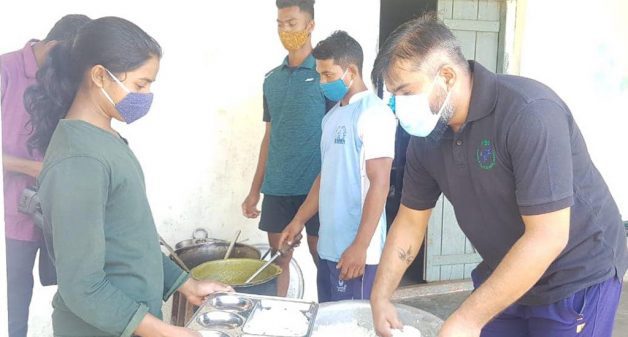The economic slowdown and loss of employment have resulted in widespread food and nutritional insecurity not only in urban areas but also in the country’s hinterland. Experts have claimed that this might further worsen nutritional status amongst the most marginalized such as the Adivasis and Dalits. The pandemic induced economic distress has made it more difficult for people like migrant workers and the differently-abled in the informal sectors to meet their basic needs.
About 71 million people will be pushed into extreme poverty across the globe as a result of the pandemic, projects the World Bank. We are facing an impending food emergency, says a United Nations report. The World Food Program estimates that an additional 130 million people could fall into the ‘food insecure’ category in the coming days.
According to the Global Food Policy Report 2021 launched by the International Food Policy Research Institute, “Before the pandemic, there were three billion people who could not afford a healthy diet. Currently due to impacts of the pandemic, some 267.6 million more people would join this list in 2020-2022.”
Although India is going through a phase of increased number of positive coronavirus cases and fatalities, some civil society organizations have come forward to help vulnerable groups by providing food and necessary information to fight against COVID-19.
Feeding the marginalized
KISS Foundation, a not-for-profit organization set up to support Kalinga Institute of Social Science (KISS) educate and empower the marginalized people of Odisha, has been at the forefront during the pandemic, helping those in need.
To tackle the rising food insecurity during the pandemic, the foundation, in collaboration with AIESEC, a global platform helping youth develop leadership skills, has been offering support. Working under the guidance of Bhubaneswar Municipal Corporation it has been distributing hygienic cooked meals twice a day in 15 districts of Odisha.

The districts where the foundation lends support in the form of meals include Rayagada, Koraput, Nabarangpur, Malkangiri, Kalahandi and Kandhamal – districts that are underdeveloped. The foundation distributes 3,000 meals to the needy every day.
The initiative has benefited people at the margins, including the Adivasis and Dalits, since the foundation works with a special focus on feeding differently-abled persons, single women, woman-headed households, migrant workers, tribal students and the elderly.
Sustaining the vulnerable
“I have been getting two meals every day for two weeks. The meal includes rice, dal, vegetable curry and egg,” said Nakul Kirsani (22) who is a Bonda, one of the particularly vulnerable tribal groups, staying in Malkangiri town.
Kirsani’s mother died recently, but due to the lockdown he was not able to travel to Bondaghati, his hometown in Khairput administrative block in Malkangiri district. When he had exhausted his meagre savings and surviving in Malakangiri became a struggle, the meals distributed by the foundation sustained him.

“We have identified several students like Kirsani who have been struggling to cope during this crisis,” said Ramya Ranjan Parida, coordinator of KISS for Malkangiri district. “Currently, on a daily basis, we are providing free cooked meals to at least 30 tribal students, 50 old people and 20 differently-abled persons.”
Raju Achari, a Malkangiri-based social activist, has been actively involved in identifying vulnerable people who need support of basic needs. “It’s not enough encouraging people to practice hygienic behavior,” said Achari. “If they are hungry, how will we be able to triumph over the virus.”
Nutritious meals
In Kandhamal district of Odisha, Bhagirathi Sethi, district coordinator of KISS Foundation has been coordinating the distribution of cooked meals to 100 people every day. “Our top priority is to maintain cleanliness and hygiene in preparing nutritious food, and strictly enforcing COVID-19 guidelines while distributing the food,” said Sethi.
“It is risky to step out of your house this time. The virus is invisible,” said Bidhyadhar Pradhan, who works as a volunteer and facilitates the distribution of free meals in Kandhamal. “There are vulnerable people who need urgent assistance. We cannot abandon them. I feel proud to be able to help them during this crisis.”

Odisha has performed well in handling the crisis. Around 70 lakh women members of six lakh self-help groups under Mission Shakti are collectively working to help the people in need, providing them basic necessities such as dry rations, groceries and cooked food prepared in a community kitchen.
Around 45,000 people are being fed through these community kitchens every day during this pandemic. In ensuring food security, these efforts of the self-help groups, KISS Foundation and other organizations, offers the beneficiaries hope during this pandemic.
Abhijit Mohanty is a Delhi-based development professional. He has worked extensively with the indigenous communities in India and Cameroon. He is associated with KISS as part of his development work. Views are personal.








